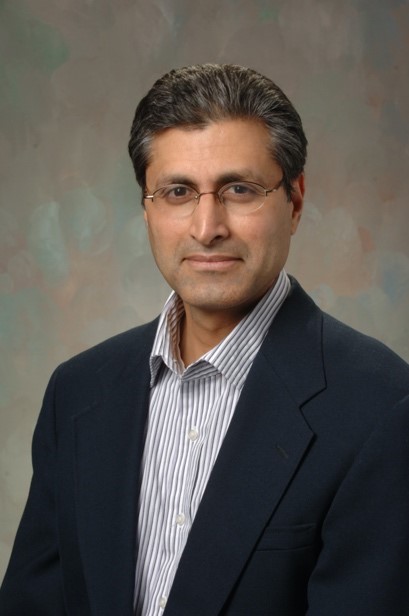
- This event has passed.
CBE Seminar: “Role of Water in Underwater Adhesion” (Ali Dhinojwala, University of Akron)
April 10, 2024 at 3:30 PM - 4:30 PM
Abstract
Roughness and wetness can disrupt interfacial bonding and reduce adhesion, and this phenomenon is of relevance for many biological and engineering applications. I will discuss how roughness affects both dry and wet adhesion as well as provide an overview of our current theoretical understanding in this area. My specific interest is in underwater adhesion, focusing on overcoming the challenges for achieving adhesion in confined water, which reduces molecular contact (particularly when in contact with rough surfaces). The trapping of confined water is a function of roughness, surface chemistry, and kinetics, making this a difficult problem to explain using theoretical models. Interestingly, nature has developed a wide range of strategies that enable organisms to stick to rough and wet surfaces. For example, geckos and insects use fibrillar structures to create molecular contact and to improve water drainage, spiders use hygroscopic salts to reduce interfacial water next to hydrophilic surfaces, and mussels use specific chemical groups (catechol) to bind to polar surfaces. I will share new strategies inspired by these natural systems for improving adhesion and discuss how they are applied to biomedical and engineering applications that require adhesion to wet and rough surfaces.

Ali Dhinojwala
Gerald W. Austen Endowed Chair
Professor Dhinojwala received his undergraduate degree from the Indian Institute of Technology and his PhD from Northwestern University in Chemical Engineering. Thereafter, he was a Research Scientist at the Department of Materials Science at the University of Illinois, Urbana-Champaign, for two years. He then joined GE Plastics, where he designed new carbonate-based materials for DVDs. In 1997, he joined the Department of Polymer Science at the University of Akron. Professor Dhinojwala has served as Department Chair, Interim Dean of the College of Polymer Science and Polymer Engineering, and the Director of the School of Polymer Science and Polymer Engineering. He is currently the Gerald W. Austen Endowed Chair and the H.A. Morton Professor in the School of Polymer Science and Polymer Engineering. Professor Dhinojwala’s research interests are in interfacial science and understanding the properties such as adhesion, friction, and wetting. He is the co-PI of the Biomimicry Research and Innovation Center at the University of Akron, where he leads efforts in the nature-inspired design of new materials.
